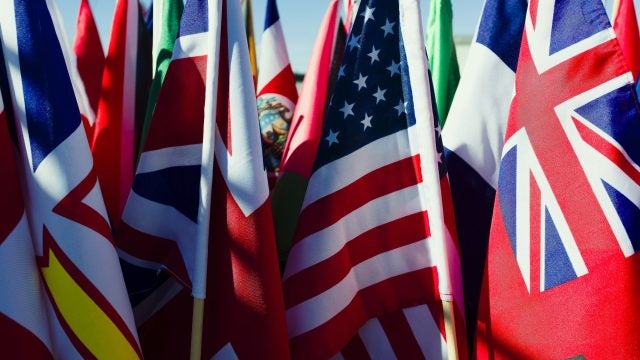
Title: Russia’s Struggle for Press Freedom
Russia’s lack of a free press imperils the ability of domestic actors to protect human rights in the country, undermines the legitimacy of the political system, and makes it hard to deliver necessary reforms to set the economy on a more solid foundation. Vibrant flows of information are required to ensure a just political system and nurture the exchange of ideas and technologies that undergird competitive high-tech businesses.
Further, the country’s inability to have a critical dialogue in the media about the problems that ordinary citizens face makes it impossible for society to realize the full potential of its rich human capital. The Russian press faces challenges including ownership concentration, limits on what can be discussed, violence against journalists, and low journalistic standards. However, youth-driven change represents hope for meaningful reform.
Among the many problems faced by Russian media, ownership concentration is at the top of the list. Currently, three main groups control the most important outlets: the state through direct control, state-owned companies such as Gazprom, which effectively follow Kremlin directives, and state-friendly oligarchs who fear loss of their businesses if they allow their television stations and newspapers to criticize the authorities or broach sensitive topics. The authorities, for example, forced a change of ownership at RBK, the business publication that had published numerous hard-hitting investigative reports about various forms of state and corporate abuse. Moreover, since the 2011–2012 anti-election fraud protests, the Kremlin has increasingly cracked down on the internet, closing down some of the most popular opposition web sites and turning loose its troll armies on users trying to engage in critical conversations.
The state effectively blocks opposition politicians and critical voices from making their case on mainstream television networks and in important newspapers. The opposition’s most effective advocates are relegated to the Ekho Moskvy radio station, the internet-based Dozhd TV, and a handful of small circulation newspapers. For example, anti-corruption crusader Alexey Navalny and his various investigations frequently appear on Ekho Moskvy and its high-traffic web site, while he is nearly invisible on national television. In an illustration of the severity of the state’s repressive policies, some ordinary citizens have been sent to jail for reposting critical messages on social media. Blogger Roman Grishin, for instance, received a 40-day sentence for reposting a musical clip criticizing Russia’s war on Ukraine. While the authorities do not assert totalitarian control over everyone, they arrest enough people to send a strong signal to otherswho might want to take on the government that all potential dissidents should think twice before speaking out. Ultimately, only those brave enough to risk imprisonment are willing to cross the Kremlin.
Journalists’ safety is also a key issue. The Committee to Protect Journalists lists 82 reporters killed in Russia between 1992 and 2018. Most recently, Maksim Borodin died in suspicious circumstances on April 15 after reporting on the deaths of Russian mercenaries fighting in Syria, a topic the Kremlin wants to avoid. Many journalists have perished trying to cover the human rights abuses that persist in the Northern Caucasus. Journalists also face danger when they report on corruption, as the officials indicted in these activities try to prevent evidence from surfacing by threatening journalists with physical violence or the loss of their jobs. Last year, prominent commentator Yulia Latynina fled Russia out of concern for her life.
Journalistic standards have also been an issue. Natalia Roudakova’s recent book Losing Pravda: Ethics and the Press in Post-Truth Russia argues that the privatization of the media after the fall of the Soviet Union created a chasm between journalists and their audience. Today, many officials and regime supporters engage in a discourse describing journalism as “political prostitution.” The result is that viewers and readers often do not trust the news and become cynical about the entire political process. This unraveling has brought about a situation in which society has lost interest in efforts to seek out the truth and to hold the authorities accountable. The vast majority of Russians now feel that it is pointless to get involved in the political process because their participation has little chance of effecting real change. This cynicism undermines all aspects of Russian political life and forces most ordinary citizens to focus on their families, careers, or private pursuits that have little directly to do with building a strong civil society.
While many are critical of the media in the United States, journalists provide a useful counterbalance to potential abuses of power. The media also provides a platform for people to discuss the country’s problems and propose solutions. While such discussions can often be long and painful, they are better than the alternative of a repressed media. The reform of the Soviet Union began by lifting some of the numerous restrictions on the media and similar changes are necessary for Russia today. The prospects for such progress at the moment, though, are dim.
In these conditions, where is change likely to come from? Just as many Americans are now focused on the rise of a new generation, led by the high school students from Florida seeking to ensure that their schools are safe, Russia has also seen surprising political activism among high school students.
Last year, Navalny organized street protests against corruption in which many of the participants were younger than 18. While it is hard to determine exactly how many youths participated, the numbers were large enough to begin to change perceptions about what is possible in Russian society. The generation of Russians born in 2000 or later has only known their national leader to be Vladimir Putin. Putin, who took office at the beginning of 2000 and has controlled the levers of power ever since, returned to the presidency in 2012, taking back the office from 4-year place-holder Dmitry Medvedev. Putin’s decision to extend his personal rule effectively snuffed out any hopes for peaceful political or economic reform in Russia short of regime change.
Will the younger generation have the grit and determination to contest the entrenched interests in the Russian state that currently seek to protect their vast and ill-gotten gains? Putin has signaled clearly that he will not leave without a fight.
Despite growing up in a highly regulated media environment, Russia’s young people have begun to express themselves publicly and without fear. While such activism is not universal, and many people of the rising generation remain focused on their personal interests or their careers, the appearance of a new group willing to speak out against official abuse of power and in favor of alternatives is a sign of hope.
Growing protests in the regions following incidents of deadly fires and sickening exposures to poisons suggests that the public is ready for a government that prioritizes the health and safety of its citizens over benefits for the well connected. The public acts of defiance effectively create demand for an independent media that will hold Russian officials accountable.
Nothing will happen in Russia without a struggle for power. The young generation has the benefit of taking a long-term approach. They also lack a fixation on the past and may be willing to take on long odds in an effort to force their country to live up to its potential. Putin’s propaganda, drawing on a long tradition of reactionary thought, will tell you that the situation can always get worse, so it is better to stick with the devil you know and not upset the status quo.
But the potential of new media technologies has yet to be fully tapped. Authoritarians have figured out how to manipulate the internet to their advantage, but perhaps the younger generation may be able to wield these new tools against their powerful overlords. Simply maintaining the Russian status quo assures a continued sink into mediocrity. Little is likely to change without a free press or empowered youth.
. . .
Dr. Robert Orttung is an associate research professor of international affairs at George Washington University and the director of research at the GW Sustainability Collaborative. His interests include the development of media in Russia and questions of urban sustainability in the Arctic. He has also published books about Putin’s Olympics and the prospects for reform in Ukraine.
More News

This article compares U.S. and Chinese approaches to artificial intelligence (AI) exports in Africa and examines how these disparate approaches have produced both downstream benefits and challenges for the region.

On May 20, 2025, the World Health Assembly unanimously adopted the World Health Organization (WHO) Pandemic Agreement, an international treaty designed to strengthen pandemic prevention, preparedness, and…

As the Trump administration proposes a sweeping overhaul of the US foreign assistance architecture by dismantling USAID, the Millennium Challenge Corporation (MCC), and restructuring the State Department, there is an…